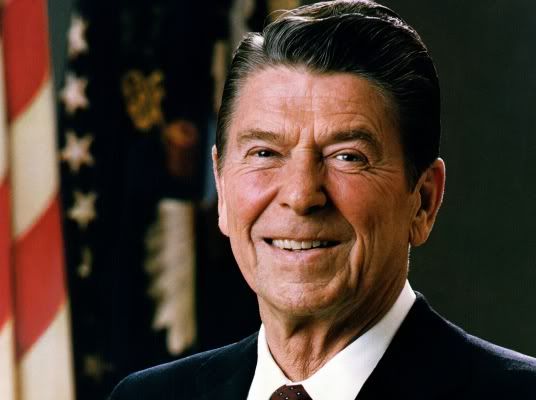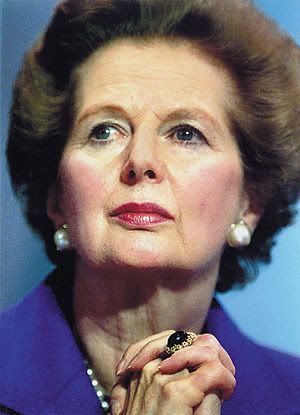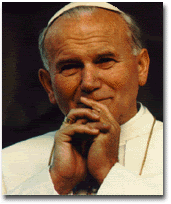Margaret Thatcher,
Ronald Reagan, John Paul II: there are no finer names to get Lefty blood
boiling. John O’Sullivan, a conservative writer, journalist, and editor and
one-time advisor to Thatcher, finds all three admirable. But then that’s how it
goes. One side’s heroes are another side’s villains and God forbid we should
find anything admirable in our villains or disappointing in our heroes. Not
that The President, The Pope and the Prime Minister: Three who changed the world is a hagiography. But it is certainly
written from a conservative viewpoint.
Its main thrust is the
part these three played in the collapse of the Soviet Union. There are those
that will tell you the Soviet Union would have collapsed anyway. Oddly these
are often the same people who were screaming at the policies that were brought
in place to try and engender the collapse of the Soviet Union. These policies
will never work! They’re dangerous! We’ll be at war before the USSR collapses!
[USSR collapses] Oh well, that was always going to happen.
This is the argument
used whenever someone we don’t like does something that is good; that was
always going to happen, or as an alternative, oh anyone would have done the
same in the same circumstances. God knows I’ve done it myself. But John O’Sullivan
shows that the downfall of the Soviet Union was brought about in large part due
to the change in direction at the Vatican, Downing Street and the White House
when these ‘conservative’ leaders took quite radical turns.
It was Richard Nixon
who engineered Détente, a policy of co-existence that was to ensure that the
two
most powerful nations in the world would have no reason to go to war. But
what this did, as writers and dissidents such as Natan Sharansky will tell you,
was to trade the human rights of people living under the Soviet Union for
international stability. Living in a Western democracy that now was under less
threat, this probably seemed like a good deal. Living in a gulag, less so.
Reagan, Thatcher and
John Paul II refused to accept the Soviet Union as a fact of life. And this was
quite a radical step. During Reagan’s presidency for example, Teddy Kennedy
visited the USSR to advise them how to deal with Reagan. This was not done out
of any traitorous leanings but because Kennedy, like so many, assumed the USSR
was not going anywhere and so to antagonise them as Reagan was doing, was
dangerous. It was sincerely held belief, and as it turns out, wrong.
John Paul knew what
living under a Communist dictatorship was like, which drove his policy towards
the Soviet Union. His visit to Poland in 1979, which O'Sullivan sees as a starting point, was greeted by thousands and
thousands of his fellow Poles, giving them the knowledge that their unhappiness
with their government was shared by millions of their fellow Poles. Between his
speeches calling for free and just government and their sheer will and numbers,
the Poles received strong moral support for their long and difficult campaign
for freedom.
This was supported by
political, military, economic and moral pressure from Britian and the US. Sullivan
brings together many of the events of that time from 1978 through to showing
the effect on the Cold War endgame, including the Falklands War, the
Iran-Contra scandal, and the assasination attempts on all three of his main
players. Some of the stories as played out in popular culture are revealed as
having layers. For example, Reagan’s Star Wars Initiative as it was known was a
controversial attempt to build defensive missile shield in outer space. This
was portrayed at the time as as dangerous game of military-economic
brinkmanship. Less well known was Regan’s repeated offers to the USSR to share
the technology. If both sides had it, then they could both reduce their nuclear
stockpile as it would not be much use. This offer was knocked back, more than
once. Certainly I never knew this. Doubtless the element of risk was still
there. But if O’Sullivan’s account is accurate, Reagan read the Soviets better
than they read him.
Of course it was not just these three
people who brought about the change. From Lech Walena through to the thousands
of politicians, workers, protesters and dissidents in many countries, most of
whose names we will never know, there were many others, and their struggles and sacrifices were crucial. But their efforts would
have been in vain without the support of these leaders showing it in practical
terms on the world stage.
You can read of more
critical accounts of this time - His Holiness by Carl Bernstein and Marco Politi, for example - if you wish, and
I don’t claim this book to be the final word. Any big topic like this requires
wide reading. Nor, before anyone jumps and down, do I claim these three are
beyond criticism. But it shook a few of my preconceptions of the time,
particularly my view of Reagan, and that’s a good thing. If you only read to
find writers you agree with, what’s the point of reading at all?



No comments:
Post a Comment